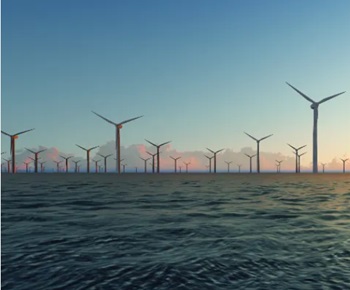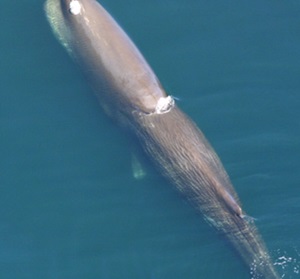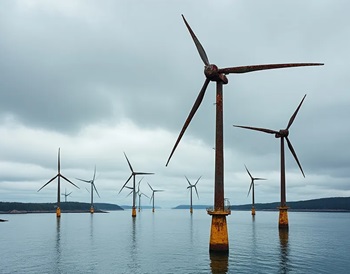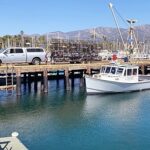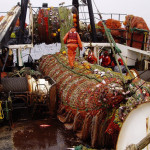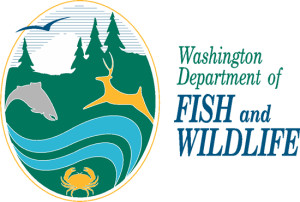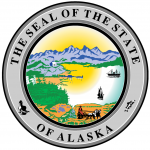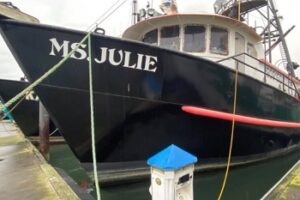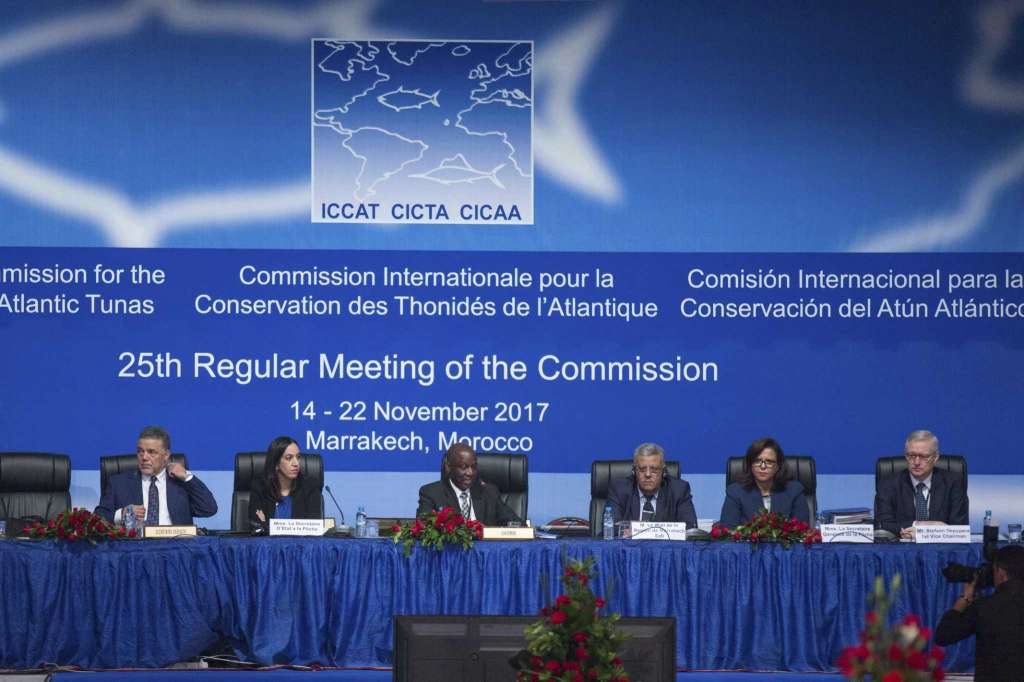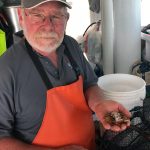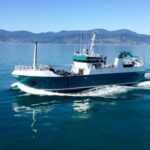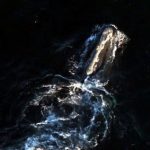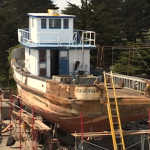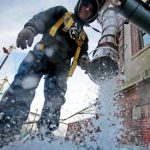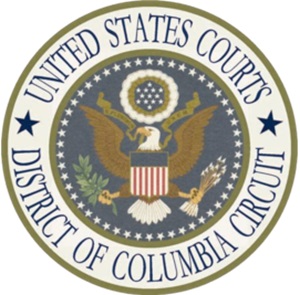 A U.S. appeals court on Monday appeared open to upholding a federal rule requiring commercial fishermen to fund a program to monitor for overfishing of herring off New England’s coast even after the U.S. Supreme Court in that same case issued a landmark ruling curbing agencies’ regulatory power. A three-judge panel of the U.S. Court of Appeals for the District of Columbia Circuit, during oral arguments, weighed the impact of the U.S. Supreme Court’s June decision, opens new tab to scrap a 40-year-old legal doctrine that had required courts to defer to agencies’ interpretations of ambiguous laws they administer. The 6-3 conservative majority U.S. Supreme Court nixed the doctrine, known as “Chevron deference,” after taking up an appeal by several commercial fishing companies of the D.C. Circuit panel’s 2-1 ruling in August 2022, opens new tab that had relied on the doctrine to uphold the fishing rule. more, >>CLICK TO READ<< 07:03
A U.S. appeals court on Monday appeared open to upholding a federal rule requiring commercial fishermen to fund a program to monitor for overfishing of herring off New England’s coast even after the U.S. Supreme Court in that same case issued a landmark ruling curbing agencies’ regulatory power. A three-judge panel of the U.S. Court of Appeals for the District of Columbia Circuit, during oral arguments, weighed the impact of the U.S. Supreme Court’s June decision, opens new tab to scrap a 40-year-old legal doctrine that had required courts to defer to agencies’ interpretations of ambiguous laws they administer. The 6-3 conservative majority U.S. Supreme Court nixed the doctrine, known as “Chevron deference,” after taking up an appeal by several commercial fishing companies of the D.C. Circuit panel’s 2-1 ruling in August 2022, opens new tab that had relied on the doctrine to uphold the fishing rule. more, >>CLICK TO READ<< 07:03Tag Archives: NOAA
$5.4 million to further innovative research and outreach in support of the lobster industry and fishing communities
 The American lobster fishery and American lobster fishery in the Gulf of Maine, Georges Bank and southern New England continue to face uncertainties due to environmental and socio-economic changes. Such challenges underscore the need for continued research and engagement to not only understand the fishery’s current state but also prepare for its future state. Since 2019, Sea Grant’s American Lobster Initiative has addressed critical knowledge gaps about the American lobster and its fishery facing a dynamic and changing environment. The Initiative supports a regional extension program in the Northeast and a national research competition. Fifteen emerging research projects were selected in 2023 and 2024 for $4.6 million in federal funding by the NOAA National Sea Grant College Program. The projects were chosen through a competitive process, including review by subject matter experts, and require at least a 50-percent match in non-federal funds. more, >>CLICK TO READ<< 10:03
The American lobster fishery and American lobster fishery in the Gulf of Maine, Georges Bank and southern New England continue to face uncertainties due to environmental and socio-economic changes. Such challenges underscore the need for continued research and engagement to not only understand the fishery’s current state but also prepare for its future state. Since 2019, Sea Grant’s American Lobster Initiative has addressed critical knowledge gaps about the American lobster and its fishery facing a dynamic and changing environment. The Initiative supports a regional extension program in the Northeast and a national research competition. Fifteen emerging research projects were selected in 2023 and 2024 for $4.6 million in federal funding by the NOAA National Sea Grant College Program. The projects were chosen through a competitive process, including review by subject matter experts, and require at least a 50-percent match in non-federal funds. more, >>CLICK TO READ<< 10:03
South Carolina shrimpers applaud decision to impose duties on shrimp imported from four countries
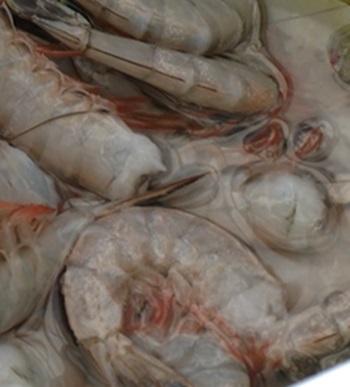 South Carolina shrimpers are celebrating the U.S. International Trade Commission’s recent decision to crack down on frozen shrimp imports from four countries. The ITC voted in favor of issuing countervailing duties on frozen, warm-water shrimp imports from Ecuador, India, and Vietnam after the U.S. Department of Commerce determined those governments were illegally subsidizing the industry. “We’re grateful because it’s an acknowledgment of what we feel and we experience in the industry and we see on a daily basis,” said Bryan Jones, a first-generation shrimper who lives in McClellanville. Jones serves as vice president of the South Carolina Shrimpers Association and was among a group of commercial fishermen who testified before the ITC in Washington, D.C. in October. more, >>CLICK TO READ<< 14:20
South Carolina shrimpers are celebrating the U.S. International Trade Commission’s recent decision to crack down on frozen shrimp imports from four countries. The ITC voted in favor of issuing countervailing duties on frozen, warm-water shrimp imports from Ecuador, India, and Vietnam after the U.S. Department of Commerce determined those governments were illegally subsidizing the industry. “We’re grateful because it’s an acknowledgment of what we feel and we experience in the industry and we see on a daily basis,” said Bryan Jones, a first-generation shrimper who lives in McClellanville. Jones serves as vice president of the South Carolina Shrimpers Association and was among a group of commercial fishermen who testified before the ITC in Washington, D.C. in October. more, >>CLICK TO READ<< 14:20
A true story, but ever so fishy…
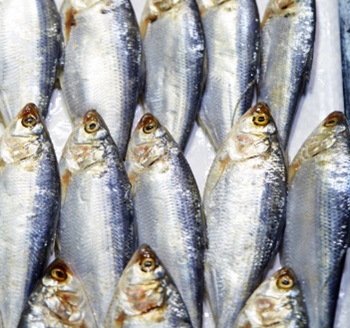 You may have heard of Chevron, the huge oil and gas company and probably one of the biggest oil producers in the world. But you may not have heard of the “Chevron deference” justified by congressional agencies. This became an unspoken government policy some 40 years ago. Here is the unspoken protocol. Congress would legislate a new, ambiguous bill to “fix” an issue. The enacted law was then passed to one of the agencies such as the FDA, EPA, USDA, or if there wasn’t a specific agency, a new one was formed. The purpose was to formulate government policy using the new law. An example is when President Jimmy Carter formed the Department of Energy in 1977. Reportedly it was to plan strategies to conserve energy and develop alternative energy sources. I will let readers form their own opinions in this time of shifting energy strategies. Yet 40 some years later, it almost all falls back on using fossil fuels. Let’s face it. Windmills and solar panels aren’t the long-term solution. more, >>CLICK TO EAD<< 07:03
You may have heard of Chevron, the huge oil and gas company and probably one of the biggest oil producers in the world. But you may not have heard of the “Chevron deference” justified by congressional agencies. This became an unspoken government policy some 40 years ago. Here is the unspoken protocol. Congress would legislate a new, ambiguous bill to “fix” an issue. The enacted law was then passed to one of the agencies such as the FDA, EPA, USDA, or if there wasn’t a specific agency, a new one was formed. The purpose was to formulate government policy using the new law. An example is when President Jimmy Carter formed the Department of Energy in 1977. Reportedly it was to plan strategies to conserve energy and develop alternative energy sources. I will let readers form their own opinions in this time of shifting energy strategies. Yet 40 some years later, it almost all falls back on using fossil fuels. Let’s face it. Windmills and solar panels aren’t the long-term solution. more, >>CLICK TO EAD<< 07:03
$2M to give more ocean information to fishers, scientists. ‘It will make a difference.’
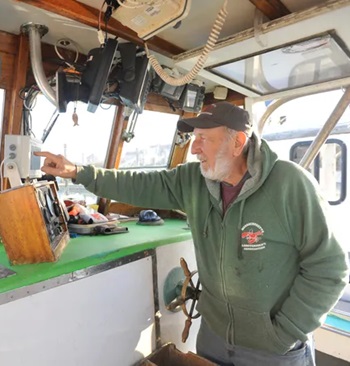 A $2 million dollar grant aimed at beefing up collaboration between commercial fishermen and scientists was announced in late October at an event in Sandwich. The money will put 450 more sensors on commercial fishing equipment and data monitors on 150 more commercial fishing vessels. David Casoni has been fishing for 50 years. His lobster boat, Margaret M, is docked at Sandwich Marina. He has hundreds of lobster traps in Cape Cod Bay. He’s placed most of them based on historic knowledge. “We’re trying to catch an animal that has virtually no brain and it’s outsmarting us,” he said. “We know it reacts to food, pheromones, and somewhat to temperature, but it’s not consistent.” more, >>CLICK TO READ<< 08:03
A $2 million dollar grant aimed at beefing up collaboration between commercial fishermen and scientists was announced in late October at an event in Sandwich. The money will put 450 more sensors on commercial fishing equipment and data monitors on 150 more commercial fishing vessels. David Casoni has been fishing for 50 years. His lobster boat, Margaret M, is docked at Sandwich Marina. He has hundreds of lobster traps in Cape Cod Bay. He’s placed most of them based on historic knowledge. “We’re trying to catch an animal that has virtually no brain and it’s outsmarting us,” he said. “We know it reacts to food, pheromones, and somewhat to temperature, but it’s not consistent.” more, >>CLICK TO READ<< 08:03
Southern Shrimp Alliance Welcomes NOAA Fisheries’ Confirmation that U.S. Wild-Caught Shrimp Is the Sustainable Choice
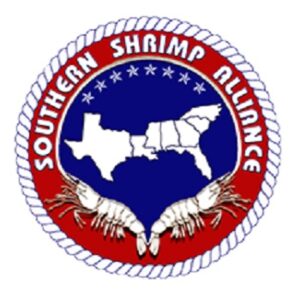 Last week, NOAA Fisheries published an on-line resource with facts regarding wild-caught American shrimp, explaining what makes it a sustainable seafood choice. Shrimp is, far and away, the most popular seafood in America. As NOAA Fisheries explains, “now about one-quarter of the seafood Americans eat is shrimp.” Yet, despite Americans’ love of shrimp, the U.S. shrimp industry is struggling. NOAA Fisheries notes that despite the fact that landings volumes were roughly the same in 2023 as they were in 2022, preliminary data from the Gulf of Mexico show that the industry sold $329 million of wild-caught shrimp in 2022 and that revenue dropped to $204 million in 2023 – a 38 percent drop.” more, >>CLICK TO READ<< 16:29
Last week, NOAA Fisheries published an on-line resource with facts regarding wild-caught American shrimp, explaining what makes it a sustainable seafood choice. Shrimp is, far and away, the most popular seafood in America. As NOAA Fisheries explains, “now about one-quarter of the seafood Americans eat is shrimp.” Yet, despite Americans’ love of shrimp, the U.S. shrimp industry is struggling. NOAA Fisheries notes that despite the fact that landings volumes were roughly the same in 2023 as they were in 2022, preliminary data from the Gulf of Mexico show that the industry sold $329 million of wild-caught shrimp in 2022 and that revenue dropped to $204 million in 2023 – a 38 percent drop.” more, >>CLICK TO READ<< 16:29
Court open to upholding US fishing monitor rule even without ‘Chevron’ doctrine
 A U.S. appeals court on Monday appeared open to upholding a federal rule requiring commercial fishermen to fund a program to monitor for overfishing of herring off New England’s coast even after the U.S. Supreme Court in that same case issued a landmark ruling curbing agencies’ regulatory power. A three-judge panel of the U.S. Court of Appeals for the District of Columbia Circuit, during oral arguments, weighed the impact of the U.S. Supreme Court’s June decision, opens new tab to scrap a 40-year-old legal doctrine that had required courts to defer to agencies’ interpretations of ambiguous laws they administer. The 6-3 conservative majority U.S. Supreme Court nixed the doctrine, known as “Chevron deference,” after taking up an appeal by several commercial fishing companies of the D.C. Circuit panel’s 2-1 ruling in August 2022, opens new tab that had relied on the doctrine to uphold the fishing rule. more, >>CLICK TO READ<< 07:03
A U.S. appeals court on Monday appeared open to upholding a federal rule requiring commercial fishermen to fund a program to monitor for overfishing of herring off New England’s coast even after the U.S. Supreme Court in that same case issued a landmark ruling curbing agencies’ regulatory power. A three-judge panel of the U.S. Court of Appeals for the District of Columbia Circuit, during oral arguments, weighed the impact of the U.S. Supreme Court’s June decision, opens new tab to scrap a 40-year-old legal doctrine that had required courts to defer to agencies’ interpretations of ambiguous laws they administer. The 6-3 conservative majority U.S. Supreme Court nixed the doctrine, known as “Chevron deference,” after taking up an appeal by several commercial fishing companies of the D.C. Circuit panel’s 2-1 ruling in August 2022, opens new tab that had relied on the doctrine to uphold the fishing rule. more, >>CLICK TO READ<< 07:03South Carolina shrimpers are in troubled waters. Here’s how the industry is seeking relief
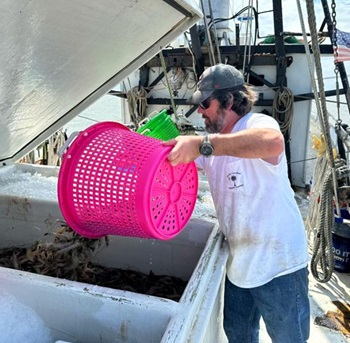 South Carolina shrimpers are in a fight for their industry’s future. Facing pressures from foreign countries shipping in cheap, frozen catches in abundance, domestic shrimpers have been unable to compete. Bryan Jones is a first-generation shrimper in McClellanville. Before his life became centered around nets and saltwater and fresh catch, he was a vice president of a wealth management firm in Florida. The work is exhausting and the days on the deck of his trawler, the Pamela Sue, are long, Jones said. There are risks involved with shrimping — financial, environmental, physical — but he saw an opportunity to create a livelihood for his family and couldn’t resist. He joins at a time when fishermen are struggling, and more are deciding to leave the trade altogether. “The average age of a shrimp boat captain, I believe, is 65,” Jones said. “What we need is an injection of youth in the industry to sustain it.” Photos, more, >>CLICK TO READ<< 11:21
South Carolina shrimpers are in a fight for their industry’s future. Facing pressures from foreign countries shipping in cheap, frozen catches in abundance, domestic shrimpers have been unable to compete. Bryan Jones is a first-generation shrimper in McClellanville. Before his life became centered around nets and saltwater and fresh catch, he was a vice president of a wealth management firm in Florida. The work is exhausting and the days on the deck of his trawler, the Pamela Sue, are long, Jones said. There are risks involved with shrimping — financial, environmental, physical — but he saw an opportunity to create a livelihood for his family and couldn’t resist. He joins at a time when fishermen are struggling, and more are deciding to leave the trade altogether. “The average age of a shrimp boat captain, I believe, is 65,” Jones said. “What we need is an injection of youth in the industry to sustain it.” Photos, more, >>CLICK TO READ<< 11:21
Is U.S. Wild-Caught Shrimp Sustainable? The Short Answer Is Yes
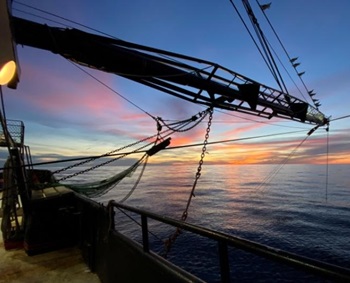 U.S.-harvested shrimp is nutritious, delicious… and sustainable! The shrimp fishery has also historically been a culturally important economic engine. It provides a livelihood for thousands of U.S. commercial fishermen. U.S. shrimp are a sustainable seafood option, and the United States sets a global precedent for shrimp trawl bycatch reduction. But our nation’s shrimp industry is struggling to stay afloat and there’s confusion about its sustainability. Here are the facts about U.S. wild-caught shrimp. Most U.S. shrimp are caught in the Southeast from Texas to North Carolina. Three species—white shrimp, pink shrimp, and brown shrimp—make up the vast majority of the shrimp caught. more, >>CLICK TO READ<< 10:22
U.S.-harvested shrimp is nutritious, delicious… and sustainable! The shrimp fishery has also historically been a culturally important economic engine. It provides a livelihood for thousands of U.S. commercial fishermen. U.S. shrimp are a sustainable seafood option, and the United States sets a global precedent for shrimp trawl bycatch reduction. But our nation’s shrimp industry is struggling to stay afloat and there’s confusion about its sustainability. Here are the facts about U.S. wild-caught shrimp. Most U.S. shrimp are caught in the Southeast from Texas to North Carolina. Three species—white shrimp, pink shrimp, and brown shrimp—make up the vast majority of the shrimp caught. more, >>CLICK TO READ<< 10:22
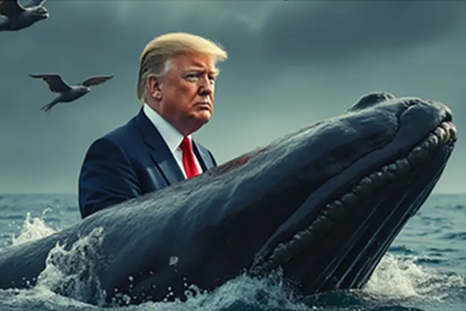
New Report Suggests “Whale Psychiatrist” Trump May be Right About Wind Farms and Whales
US Bureau of Ocean Management report says whales, dolphins, birds and bats can all be injured by wind turbine construction, and offshore fishing harmed. Trump has been an advocate for keeping America clean and healthy. He has not advocated for the anti-carbon push based on pseudoscience and the rush into green energy projects put forth by environmentalists. Admittedly. the National Oceanic and Atmospheric Administration (NOAA) has officials saying they have found no evidence linking offshore wind turbines to whale deaths. However, a new report from the U.S. Bureau of Ocean Energy Management (BOEM) has just released a new report that said whales, dolphins, birds and more can be exposed to “unavoidable adverse impacts” by the construction of offshore wind farms. more, >>CLICK TO READ<< 08:50
New Federal Report: Offshore Wind Farm Construction Can Harm Whales, Birds, Fisheries – >>CLICK TO READ<<
Maine lobstermen worried about cuts to how much herring they can catch for bait
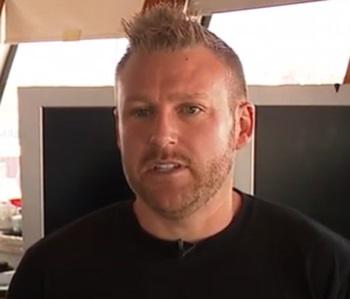 Fishermen in Maine say they’re dealing with a new setback: a nearly 90 percent cut in how much herring they can bring in to bait lobster. Congressman Jared Golden says he’s opposed to the limit, which would reduce the herring catch by 89 percent over three years. “What was troubling with this decision is there was no impact study done to us as fishermen, just an environmental study that was based on essentially one year of a proper study, to have implications to destroy an entire economic sector of Maine,” fisherman Ryan Raber said. Video, more, >>CLICK TO READ<< 06:19
Fishermen in Maine say they’re dealing with a new setback: a nearly 90 percent cut in how much herring they can bring in to bait lobster. Congressman Jared Golden says he’s opposed to the limit, which would reduce the herring catch by 89 percent over three years. “What was troubling with this decision is there was no impact study done to us as fishermen, just an environmental study that was based on essentially one year of a proper study, to have implications to destroy an entire economic sector of Maine,” fisherman Ryan Raber said. Video, more, >>CLICK TO READ<< 06:19
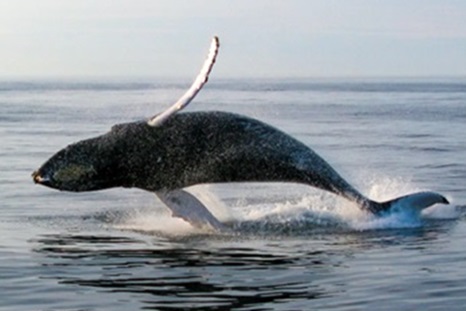
New Federal Report: Offshore Wind Farm Construction Can Harm Whales, Birds, Fisheries
The U.S. Bureau of Ocean Energy Management (BOEM) on Monday released a new report that said whales, dolphins, birds and more can indeed be harmed — and killed —by offshore wind farms. BOEM also warned commercial fishing could be disrupted by wind farms. The report is an environmental impact statement BOEM was required to conduct of these six existing wind farm sites that were previously approved off New Jersey/Long Island. Wind turbine construction actually does increase the risk of injury to whales, particularly the underwater noise from pile-driving during construction, the federal report found. Turbine construction can permanently damage whales’ hearing. Turbines can also lead to an “increased risk of individual injury and mortality due to vessel strikes” and entanglement in fishing gear. more, >>CLICK TO READ<< 07:36
Right whale population grows 4%, but extinction remains a threat
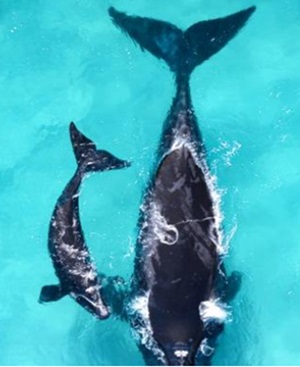 Conservationists are calling on the government, shipping and fishing industries to save the North Atlantic right whale from extinction despite an increase in its population. Researchers studying the whales said this week that the population increased to an estimated 372 in 2023. That’s an increase of about four percent from 2020, and “heartening news” after the whale’s population fell by about 25 percent from 2010 to 2020. The population of the right whale, which can weigh up to 150,000 pounds (68,039 kilograms) and lives off the East Coast, plummeted in the 2010s. Stressed by global warming and vulnerable to ship collisions and entanglement in fishing gear, their numbers fell to fewer than 360 by the early 2020s. more, >>CLICK TO READ<< 12:29
Conservationists are calling on the government, shipping and fishing industries to save the North Atlantic right whale from extinction despite an increase in its population. Researchers studying the whales said this week that the population increased to an estimated 372 in 2023. That’s an increase of about four percent from 2020, and “heartening news” after the whale’s population fell by about 25 percent from 2010 to 2020. The population of the right whale, which can weigh up to 150,000 pounds (68,039 kilograms) and lives off the East Coast, plummeted in the 2010s. Stressed by global warming and vulnerable to ship collisions and entanglement in fishing gear, their numbers fell to fewer than 360 by the early 2020s. more, >>CLICK TO READ<< 12:29
It’s Time to Abandon UMaine’s Offshore Wind Scheme in Favor of Cheaper Alternatives
 The federal government this week blocked a proposal that would have allowed the Mills Administration and labor unions to bulldoze Sears Island into an industrial wind power port. Although this hard-fought victory is good news for fishermen, ratepayers, taxpayers, and the environment, it’s only temporary. The Mills Administration has given no indication that it will stop its relentless pursuit of expensive and unworkable offshore wind schemes. Depending on how Election Day turns out, the Legislature could be back at the drawing board devising other ways to enrich the wind turbine industry and destroy pristine ocean environments. So it’s worth remembering how we got here, and how Maine’s institutions and media became witting and unwitting pawns in an expensive game of crony capitalism. more, >>CLICK TO READ<< 06:35
The federal government this week blocked a proposal that would have allowed the Mills Administration and labor unions to bulldoze Sears Island into an industrial wind power port. Although this hard-fought victory is good news for fishermen, ratepayers, taxpayers, and the environment, it’s only temporary. The Mills Administration has given no indication that it will stop its relentless pursuit of expensive and unworkable offshore wind schemes. Depending on how Election Day turns out, the Legislature could be back at the drawing board devising other ways to enrich the wind turbine industry and destroy pristine ocean environments. So it’s worth remembering how we got here, and how Maine’s institutions and media became witting and unwitting pawns in an expensive game of crony capitalism. more, >>CLICK TO READ<< 06:35
Ferrante urges state officials to ‘step up’ advocacy for fishing
 As the Beacon Hill political crowd munched on ceviches and chowders in the Great Hall on Wednesday, they heard a message from the seafood industry aimed more at Washington, D.C., than the halls of the State House. Rep. Ann-Margaret Ferrante, the daughter of a fisherman and a 30-year advocate for the fishing industry, spoke at the annual Seafood Day in the state capitol about “what the federal government does to us.” The Gloucester Democrat found fault with how the feds survey fishery resources and shrink local fishing quotas, saying that the industry will perish unless a new course is charted. She wasn’t alone: Roger Berkowitz, formerly of Legal Sea Foods, told the crowd about NOAA’s past use of “boats with broken gear” to formulate their stock assessments. more, >>CLICK TO READ<< 08:30
As the Beacon Hill political crowd munched on ceviches and chowders in the Great Hall on Wednesday, they heard a message from the seafood industry aimed more at Washington, D.C., than the halls of the State House. Rep. Ann-Margaret Ferrante, the daughter of a fisherman and a 30-year advocate for the fishing industry, spoke at the annual Seafood Day in the state capitol about “what the federal government does to us.” The Gloucester Democrat found fault with how the feds survey fishery resources and shrink local fishing quotas, saying that the industry will perish unless a new course is charted. She wasn’t alone: Roger Berkowitz, formerly of Legal Sea Foods, told the crowd about NOAA’s past use of “boats with broken gear” to formulate their stock assessments. more, >>CLICK TO READ<< 08:30
Bering Sea snow crab fishing to resume, but at an ultra-low level to encourage repopulation
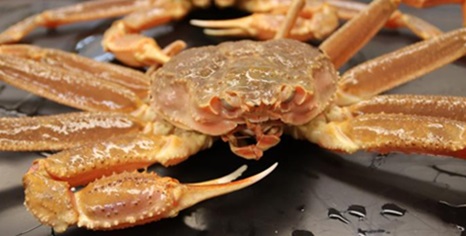 After a two-year hiatus forced by low stocks, the Bering Sea snow crab harvest is back on. The decision to reopen the harvest, announced on Oct. 4 by the Alaska Department of Fish and Game, is based on signs of recovery in the crab populations. The official harvest opening was Tuesday. Signs of recovery are modest, and so is the allowable catch. The harvest is limited to 4.72 million pounds, a level that is a far cry from the 45-million-pound quota used in the 2020-21 season and similarly large quotas in earlier years. This season’s total allowable catch is the smallest in the history of the fishery, said Mark Stichert, the Alaska Department of Fish and Game’s Kodiak-based management coordinator for groundfish and shellfish harvests. more, >>CLICK TO READ<< 19:40
After a two-year hiatus forced by low stocks, the Bering Sea snow crab harvest is back on. The decision to reopen the harvest, announced on Oct. 4 by the Alaska Department of Fish and Game, is based on signs of recovery in the crab populations. The official harvest opening was Tuesday. Signs of recovery are modest, and so is the allowable catch. The harvest is limited to 4.72 million pounds, a level that is a far cry from the 45-million-pound quota used in the 2020-21 season and similarly large quotas in earlier years. This season’s total allowable catch is the smallest in the history of the fishery, said Mark Stichert, the Alaska Department of Fish and Game’s Kodiak-based management coordinator for groundfish and shellfish harvests. more, >>CLICK TO READ<< 19:40
Alaska’s “Imploding” Fishing Industry Has Shed 38,000 Jobs
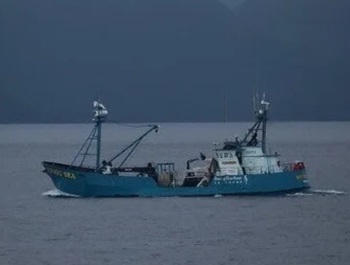 In an economic review requested by fishermen and processors, NOAA found that profitability dropped by half from 2021-23, and wholesale prices dropped by a quarter in 2022-23. This left the Alaskan seafood industry with a total direct loss of $1.8 billion in 2022-3 and the loss of about 38,000 jobs. “For many Alaskans the decline of their seafood industry affects their pocketbooks, presents food security concerns, and impacts their way of life, sense of place, community, and identity,” NOAA noted. “In the face of evolving climate-driven impacts to ecosystems and fisheries in the region, these recent market disruptions undermine the capacity of all segments of the seafood industry and associated fishing communities to be resilient and survive in fisheries.” more, >>CLICK TO READ<< 11:47
In an economic review requested by fishermen and processors, NOAA found that profitability dropped by half from 2021-23, and wholesale prices dropped by a quarter in 2022-23. This left the Alaskan seafood industry with a total direct loss of $1.8 billion in 2022-3 and the loss of about 38,000 jobs. “For many Alaskans the decline of their seafood industry affects their pocketbooks, presents food security concerns, and impacts their way of life, sense of place, community, and identity,” NOAA noted. “In the face of evolving climate-driven impacts to ecosystems and fisheries in the region, these recent market disruptions undermine the capacity of all segments of the seafood industry and associated fishing communities to be resilient and survive in fisheries.” more, >>CLICK TO READ<< 11:47
Is New Bedford the top commercial fishing port in the United States?
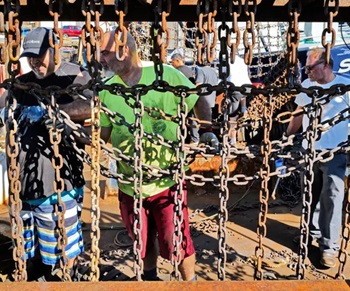 New Bedford takes great pride in its port, and its scallopers account for a significant portion of its value. It’s proven that the Port of New Bedford has great value. New Bedford still ranks as the top commercial fishing port by value as recently as 2022, according to figures released by the National Marine Fisheries Service, Oceanic and Atmospheric Administration, known as NOAA Fisheries. New Bedford had landed $443.2 million worth of seafood in 2022, again placing it at the top of NOAA Fisheries’ revenue list. That’s thanks in large part to all the scalloper landings in New Bedford contributing to the port’s value. Scallop landings accounted for 84 percent of the value. more, >>CLICK TO READ<< 06:22
New Bedford takes great pride in its port, and its scallopers account for a significant portion of its value. It’s proven that the Port of New Bedford has great value. New Bedford still ranks as the top commercial fishing port by value as recently as 2022, according to figures released by the National Marine Fisheries Service, Oceanic and Atmospheric Administration, known as NOAA Fisheries. New Bedford had landed $443.2 million worth of seafood in 2022, again placing it at the top of NOAA Fisheries’ revenue list. That’s thanks in large part to all the scalloper landings in New Bedford contributing to the port’s value. Scallop landings accounted for 84 percent of the value. more, >>CLICK TO READ<< 06:22
On US coast, wind power foes embrace ‘Save the Whales’ argument
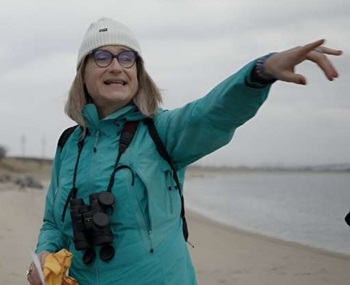 Whether from real concern for marine animals or doubts about renewable energy, the anti-wind power movement has been growing along the US East Coast, with some trying to blame a surge in whale strandings on the growth of offshore energy projects. Their attempt to link the two seems to be resonating, despite what scientists say is a clear lack of evidence. When Lauren Brandkamp and her team from the nonprofit Whale and Dolphin Conservation organization in Massachusetts carry out a rescue on an area beach, one of the first questions bystanders ask is: “Was this wind?” Wind power critics have organized coastal town gatherings, posted “Save the Whales” signs and filed lawsuits in a bid to bury new wind projects under crushing litigation fees. A recent surge in whale strandings or deaths has given them added ammunition. Photos, more, >>CLICK TO READ<< 08:41
Whether from real concern for marine animals or doubts about renewable energy, the anti-wind power movement has been growing along the US East Coast, with some trying to blame a surge in whale strandings on the growth of offshore energy projects. Their attempt to link the two seems to be resonating, despite what scientists say is a clear lack of evidence. When Lauren Brandkamp and her team from the nonprofit Whale and Dolphin Conservation organization in Massachusetts carry out a rescue on an area beach, one of the first questions bystanders ask is: “Was this wind?” Wind power critics have organized coastal town gatherings, posted “Save the Whales” signs and filed lawsuits in a bid to bury new wind projects under crushing litigation fees. A recent surge in whale strandings or deaths has given them added ammunition. Photos, more, >>CLICK TO READ<< 08:41
Rare whale died of chronic entanglement in Maine fishing gear
 The North Atlantic right whale was found dead off Martha’s Vineyard in January. The whales are declining in population and are at the center of efforts to more tightly regulate shipping and commercial fishing off the East Coast. “The fact is we know that entanglement in Maine gear is extremely rare. This is the first reported entanglement of a right whale in Maine lobster gear in 20 years and the first death attributed to the fishery,” the Maine Lobstermen’s Association said in a statement. “Maine lobstermen have made significant changes to how they fish over the last 25 years to avoid entanglement.” more, >>CLICK TO READ<< 06:55
The North Atlantic right whale was found dead off Martha’s Vineyard in January. The whales are declining in population and are at the center of efforts to more tightly regulate shipping and commercial fishing off the East Coast. “The fact is we know that entanglement in Maine gear is extremely rare. This is the first reported entanglement of a right whale in Maine lobster gear in 20 years and the first death attributed to the fishery,” the Maine Lobstermen’s Association said in a statement. “Maine lobstermen have made significant changes to how they fish over the last 25 years to avoid entanglement.” more, >>CLICK TO READ<< 06:55
Days on the water, nights at Town Office: Harpswell lobsterman advocates for working waterfront on 7 committees
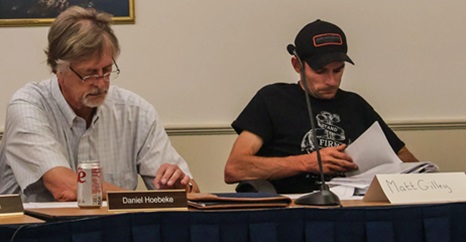 Matt Gilley stood in front of a shelf in his Cundy’s Harbor home. It holds a collection of marine oddities from the bottom of lobster traps, such as unique lobster claws, a seahorse, and a full-sized clam that grew inside a Coke bottle. “The fun part of it is, you don’t know what’s going to come up,” he said. Gilley himself is a rarity in Harpswell. In a town with 216 miles of coastline and “working waterfront” on many local signs, he is one of a small group of commercial lobstermen involved in town government, spending his mornings on the water and his evenings advocating for those who work on it. “I want to see lobstering continue, and the only way for that to continue is for there to be another generation,” he said. “If I can do anything to conserve what little we have left so other people can do it, I’m going to do it.” Photos, more, >>CLICK TO READ<< 09:10
Matt Gilley stood in front of a shelf in his Cundy’s Harbor home. It holds a collection of marine oddities from the bottom of lobster traps, such as unique lobster claws, a seahorse, and a full-sized clam that grew inside a Coke bottle. “The fun part of it is, you don’t know what’s going to come up,” he said. Gilley himself is a rarity in Harpswell. In a town with 216 miles of coastline and “working waterfront” on many local signs, he is one of a small group of commercial lobstermen involved in town government, spending his mornings on the water and his evenings advocating for those who work on it. “I want to see lobstering continue, and the only way for that to continue is for there to be another generation,” he said. “If I can do anything to conserve what little we have left so other people can do it, I’m going to do it.” Photos, more, >>CLICK TO READ<< 09:10
Maine’s massive “floating wind” folly — my report
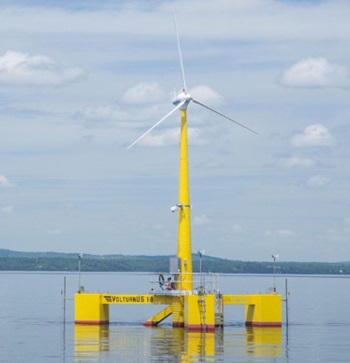 Below is my Executive Summary, followed by the latest bad news on this ongoing silly saga. This report examines several fundamental aspects of the State of Maine’s offshore wind development plan. It is divided into two parts. Part 1 examines certain economic issues, such as feasibility, cost, and progress to date. Part 2 explores the proposed development as it relates to the entire Gulf of Maine, namely because the project has not advanced to the point where the State of Maine’s responsibilities have been defined. The offshore wind plan calls for development of 3,000 MW of generating capacity, an amount that is roughly double Maine’s average electricity usage. The viability of Maine’s offshore wind plan depends entirely on the massive transformation of the state’s grid from fossil fuel use to electrification. It is clear that the citizens of Maine have not been informed of this vast transformation requirement. They have certainly not approved it. more, >>CLICK TO READ<< 09:34
Below is my Executive Summary, followed by the latest bad news on this ongoing silly saga. This report examines several fundamental aspects of the State of Maine’s offshore wind development plan. It is divided into two parts. Part 1 examines certain economic issues, such as feasibility, cost, and progress to date. Part 2 explores the proposed development as it relates to the entire Gulf of Maine, namely because the project has not advanced to the point where the State of Maine’s responsibilities have been defined. The offshore wind plan calls for development of 3,000 MW of generating capacity, an amount that is roughly double Maine’s average electricity usage. The viability of Maine’s offshore wind plan depends entirely on the massive transformation of the state’s grid from fossil fuel use to electrification. It is clear that the citizens of Maine have not been informed of this vast transformation requirement. They have certainly not approved it. more, >>CLICK TO READ<< 09:34
Cook Inlet fisheries to get $9.4M in disaster relief for 2018, 2020
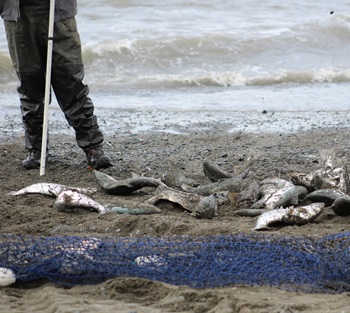 Two Cook Inlet salmon fisheries will receive more than $9.4 million in federal disaster relief that was held up, in part, by technical difficulties. They’re among ten Alaska fisheries getting money, the state’s Congressional delegation announced Friday. In all, ten fisheries across the state will receive $277 million for disasters dating back to 2018. They include 2020’s Upper Cook Inlet salmon fishery and 2018’s Upper Cook Inlet east side setnet fishery. Other fisheries that will receive money through the distribution include Bering Sea crab, Kuskokwim River and Norton Sound salmon and Gulf of Alaska pacific cod. more, >>CLICK TO READ<< 13:39
Two Cook Inlet salmon fisheries will receive more than $9.4 million in federal disaster relief that was held up, in part, by technical difficulties. They’re among ten Alaska fisheries getting money, the state’s Congressional delegation announced Friday. In all, ten fisheries across the state will receive $277 million for disasters dating back to 2018. They include 2020’s Upper Cook Inlet salmon fishery and 2018’s Upper Cook Inlet east side setnet fishery. Other fisheries that will receive money through the distribution include Bering Sea crab, Kuskokwim River and Norton Sound salmon and Gulf of Alaska pacific cod. more, >>CLICK TO READ<< 13:39
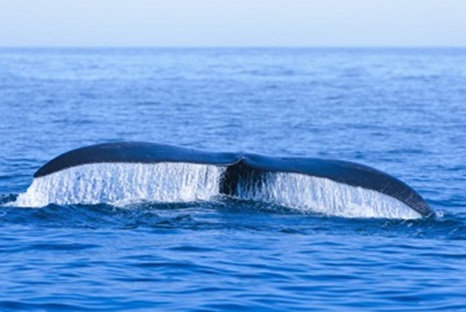
International Whaling Commission meets this week, will they discuss the US whale slaughter? By Jim Lovgren
The International Whaling Commission [IWC] meets this week from September 23 rd to the 27 th , in Lima Peru. The commission was established in 1946 and is a specialized regional fishery management organization created to provide for the proper conservation of various different Whale species, with the goal of supporting the orderly development of the Whaling industry. For two hundred years fishing vessels hunted down Whales bringing some species to the brink of extinction. Unlike the American slaughter of Buffalo, where they were killed solely for their hide, and the carcass left to rot, the Whaling industry utilized almost every part of these animals, with many indigenous populations being dependent on them as their main food source. This brings us to the present marine mammal slaughter being perpetrated by multi-national wind companies along the US east coast. In 2016 NOAA declared an unusual marine mammal mortality event was taking place with Humpback, Minke, and Northern Right Whales. Around that time research and construction was started on the Block Island wind project. more, >>CCLICK TO READ<< 16:11
James Binniker Named New Director of NOAA’s Office of Law Enforcement
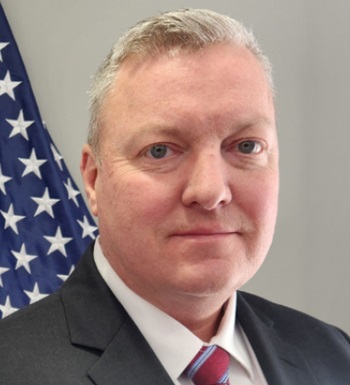 Mr. James Binniker has been selected as the new director of the NOAA Office of Law Enforcement. In this new role, Mr. Binniker will lead the agency’s work to enforce laws that conserve and protect our nation’s protected marine resources, places, and habitats, as well as to advance actions to combat illegal, unreported, and unregulated fishing and promote sustainable fisheries management. Mr. Binniker will assume his new role on September 23. As the newly appointed head of the Office of Law Enforcement, Mr. Binniker brings a strong combination of skills and experience. The office is responsible for enforcing more than 40 federal statutes over more than 3 million nautical miles of open ocean, 95,000 miles of U.S. coastline, 16 National Marine Sanctuaries, and Marine National Monuments. more, >>CLICK TO READ<< 14:47
Mr. James Binniker has been selected as the new director of the NOAA Office of Law Enforcement. In this new role, Mr. Binniker will lead the agency’s work to enforce laws that conserve and protect our nation’s protected marine resources, places, and habitats, as well as to advance actions to combat illegal, unreported, and unregulated fishing and promote sustainable fisheries management. Mr. Binniker will assume his new role on September 23. As the newly appointed head of the Office of Law Enforcement, Mr. Binniker brings a strong combination of skills and experience. The office is responsible for enforcing more than 40 federal statutes over more than 3 million nautical miles of open ocean, 95,000 miles of U.S. coastline, 16 National Marine Sanctuaries, and Marine National Monuments. more, >>CLICK TO READ<< 14:47
US Coastal Communities Fight for Space for Small-scale Fishermen
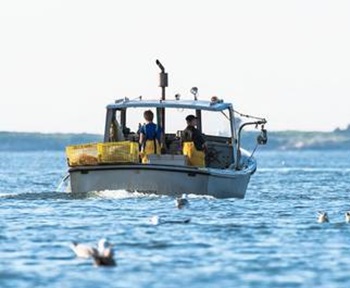 U.S. coastal waters are a public good increasingly at risk of privatization, threatening local economies that have depended on the sea for generations, fishermen and environmental advocates warned. Critics point to efforts to open up waters to industrial-scale fish farms, (offshore wind farms), a federal permit system they say is stacked against small or new operators, and even coastal real estate development squeezing out independent businesses. “There is another real estate grab, but it’s in the ocean,” said Jason Jarvis, a commercial fisherman in Rhode Island who has been fishing for three decades and also sits on the board of the North American Marine Alliance (NAMA), a national network that seeks to boost fishing communities. “This is a gold rush,” said Crystal Canney, executive director of Protect Maine’s Fishing Heritage Foundation, which has worked on model legislation to help towns push back. The efforts are prompting inquiries from concerned communities in other coastal states, she said. “The questions are really, do we have any rights?” more, >>CLICK TO READ<< 12:30
U.S. coastal waters are a public good increasingly at risk of privatization, threatening local economies that have depended on the sea for generations, fishermen and environmental advocates warned. Critics point to efforts to open up waters to industrial-scale fish farms, (offshore wind farms), a federal permit system they say is stacked against small or new operators, and even coastal real estate development squeezing out independent businesses. “There is another real estate grab, but it’s in the ocean,” said Jason Jarvis, a commercial fisherman in Rhode Island who has been fishing for three decades and also sits on the board of the North American Marine Alliance (NAMA), a national network that seeks to boost fishing communities. “This is a gold rush,” said Crystal Canney, executive director of Protect Maine’s Fishing Heritage Foundation, which has worked on model legislation to help towns push back. The efforts are prompting inquiries from concerned communities in other coastal states, she said. “The questions are really, do we have any rights?” more, >>CLICK TO READ<< 12:30
Against the Wind: Questions About BOEM’s Fisheries Analysis
 The Bureau of Ocean Energy Management (BOEM) announced the final sale notice for the Gulf of Maine offshore wind project lease areas on Sept. 16. The agency shrunk the overall area by 120,000 acres, removing significant portions of the two northern leases off the coast of Maine, carving a transit lane between the two farthest-offshore southern areas, and shaving small portions off other southern areas. This decision did little to satisfy Jerry Leeman, a Harpswell, Maine-based former commercial fisherman and founder of the New England Fishermen’s Stewardship Association (NEFSA), an organization that opposes the Gulf of Maine offshore wind area. NEFSA “remains steadfast in its opposition,” wrote Leeman in a press release, “despite the shrinking of the original areas.” more, >>CLICK TO READ<< 06:22
The Bureau of Ocean Energy Management (BOEM) announced the final sale notice for the Gulf of Maine offshore wind project lease areas on Sept. 16. The agency shrunk the overall area by 120,000 acres, removing significant portions of the two northern leases off the coast of Maine, carving a transit lane between the two farthest-offshore southern areas, and shaving small portions off other southern areas. This decision did little to satisfy Jerry Leeman, a Harpswell, Maine-based former commercial fisherman and founder of the New England Fishermen’s Stewardship Association (NEFSA), an organization that opposes the Gulf of Maine offshore wind area. NEFSA “remains steadfast in its opposition,” wrote Leeman in a press release, “despite the shrinking of the original areas.” more, >>CLICK TO READ<< 06:22
Will pop-up crab pots save Bodega Bay’s crabbing industry?
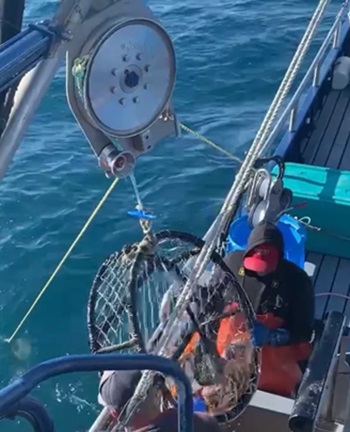 For nearly five years, Dungeness crabbers have watched their incomes diminish by up to 80% as the California Fish and Game Commission mandated seasonal closures, catch limits, and gear restrictions. The situation, as many crabbers attest, has driven many to their breaking points. “There’s people thinking, why even live?” said Tony Anello, fisher and owner of Spud Point Crab Company in Bodega Bay. Much contributes to the financial and emotional strain on the fishing community: the closure of salmon season, shortened and restricted Dungeness crab seasons, devalued boats, gear and permits, and, as existential background noise, the continued menace of climate change portending rising seas, extreme weather and a warming ocean. Dungeness crab populations do fluctuate from season to season, but, overall, the population has remained steady. The problem for crabbers isn’t crabs. It’s whales. Photos, more, >>CLICK TO READ<< 11:50
For nearly five years, Dungeness crabbers have watched their incomes diminish by up to 80% as the California Fish and Game Commission mandated seasonal closures, catch limits, and gear restrictions. The situation, as many crabbers attest, has driven many to their breaking points. “There’s people thinking, why even live?” said Tony Anello, fisher and owner of Spud Point Crab Company in Bodega Bay. Much contributes to the financial and emotional strain on the fishing community: the closure of salmon season, shortened and restricted Dungeness crab seasons, devalued boats, gear and permits, and, as existential background noise, the continued menace of climate change portending rising seas, extreme weather and a warming ocean. Dungeness crab populations do fluctuate from season to season, but, overall, the population has remained steady. The problem for crabbers isn’t crabs. It’s whales. Photos, more, >>CLICK TO READ<< 11:50






